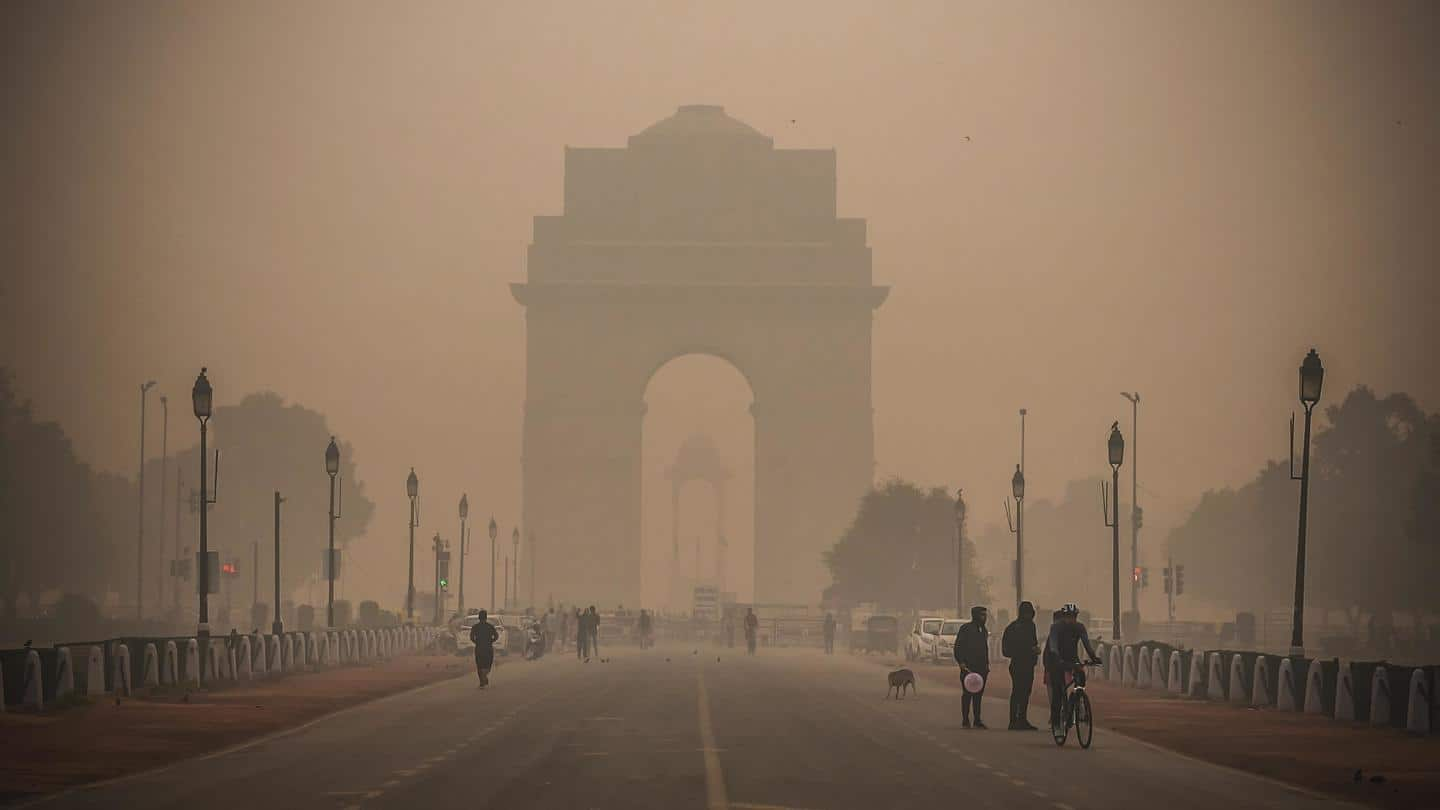
Delhi air quality turns severe day after Diwali
What's the story
Delhi's air quality plunged into the severe category the morning after Diwali.
The city had last night witnessed bursting of firecrackers despite a complete ban which contributed to the deterioration of its air.
Further, low temperature and slow wind speed allowed the accumulation of pollutants.
No significant relief is expected until Sunday evening.
Here are more details on this.
Context
Why does it matter?
The current pollution level in Delhi is a matter of concern for all its residents, especially those with existing health conditions like asthma.
Further, it highlights the failure of the city government and police to enforce the blanket ban on firecrackers - a trend that has been repeating for the past several years.
With winter approaching, pollution in Delhi is expected to remain poor.
Details
City sees swift rise in pollution
Pollutant levels rose swiftly Thursday evening onward, according to data from the Delhi Pollution Control Committee.
Levels of PM2.5 increased from 389 µg/m3 at 8 pm on Thursday to as high as 1,553 µg/m3 at 1 am on Friday. It stood at 1,164 µg/m3 at 6 am.
PM10 levels also similarly jumped from 519 µg/m3 at 8 pm to 1,643 µg/m3 at 1 am.
AQI
AQI 'severe' as of Friday morning
The Air Quality Index (AQI) as a 24-hour average at several monitoring stations across Delhi was in the severe category at 10 am on Friday.
It was 470 at Jawaharlal Nehru Stadium station, 469 at Ashok Vihar, 487 at Jahangirpuri station, and 465 at Lodhi Road station.
On Thursday, Delhi had recorded its air quality at 382 (very poor category) as a 24-hour average.
Information
Residents complain of itchy throat, watery eyes
People from several parts of the city and its suburbs complained of itchy throat and watery eyes as a layer of smog formed in the area. The neighboring cities of Faridabad (424), Ghaziabad (442), Gurugram (423), and Noida (431) also reported severe air quality.
Forecast
Slight improvement expected by Sunday
Delhi's air quality will remain in the severe category on Friday, officials said, attributing it to firecracker bursting, stubble burning, and the prevailing weather conditions.
Notably, northwesterly winds carry smoke from farm fires in Punjab and Haryana toward the capital city.
However, with strong winds, the AQI could improve by Sunday to stand in the very poor category.